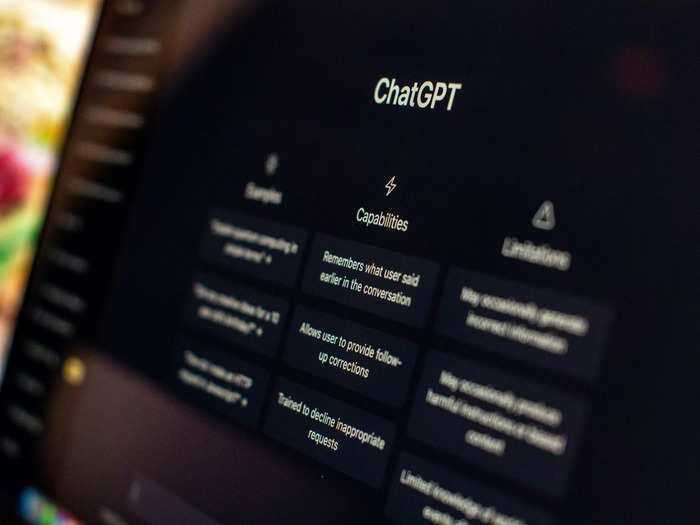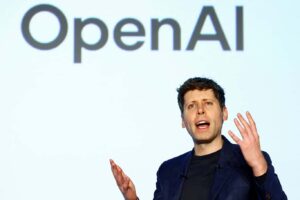AI Firms Accused of Copyright Infringement: A Focus on OpenAI and Meta

Understanding Copyright Issues in Generative AI
Since OpenAI introduced ChatGPT in November 2022, generative AI has become a hot topic globally. This chatbot has amazed users with its ability to write articles, summarize texts, clarify complex terms, and even check grammar and spelling. Essentially, things once thought to be uniquely human tasks could now be accomplished by this advanced technology, leaving many astonished. As time went on, other AI chatbots emerged, such as Gemini, Claude, and MetaAI, each being employed for various applications.
The Training Data Dilemma
AI systems are trained on vast amounts of data, some of which may be copyrighted. This raises essential questions and legal grey areas concerning the use of protected content in AI training. Over the past two years, numerous legal disputes have spotlighted the issue of copyright infringement, with creators across the spectrum—from musicians to writers—accusing AI companies of using their work without authorization. Here are five significant legal battles that have surfaced in this evolving landscape.
1. Record Labels vs. Suno and Udio AI
In January 2024, prominent record labels, including Universal Music Group, Sony Music, and Warner Music Group, filed a lawsuit against AI music companies Suno and Udio. These labels claimed that the companies unlawfully employed copyrighted music for training their AI models. As reported by Forbes, the lawsuit focused on the idea that while AI-generated music may not replicate existing tracks, the use of copyrighted material for training still violates intellectual property rights.
The major contention was that the AI’s ability to reproduce specific musical styles and nuances was derived from unauthorized access to these recordings. The lawsuit sought not just financial compensation but also measures to prevent future violations of copyright.
2. Scarlett Johansson vs. OpenAI
Hollywood actress Scarlett Johansson took legal action against OpenAI in May 2024, claiming that her voice likeness had been used without her consent in an AI-generated voice model called “Sky.” Johansson had previously denied permission for her voice to be utilized in OpenAI’s projects, yet her legal team asserted that her vocal characteristics could still be found in the AI’s output.
Despite OpenAI’s defense asserting that the voice model used was that of a different actor, they opted to remove the “Sky” voice from their offerings as a gesture toward Johansson, even as they maintained their innocence.
3. Visual Artists vs. Google
In April 2024, a group of visual artists, including the notable photographer Jingna Zhang, filed a lawsuit against Google, alleging that the tech behemoth used billions of copyrighted images to train its AI image generator named Imagen without the necessary permissions or financial compensations. According to a Reuters report, the lawsuit claimed that Google had incorporated these artists’ copyrighted works into the training dataset.
Google has denied these allegations, asserting that its AI models are derived from publicly available information. However, the case highlights the ongoing tension between large tech companies and individual creatives regarding the usage and rights to artistic material.
4. Authors vs. Anthropic
Recently, a class-action lawsuit came to light involving authors Andrea Bartz, Charles Graeber, and Kirk Wallace Johnson, who claimed that Anthropic, the creator of the AI chatbot Claude, had used unauthorized copies of their books for training purposes. As detailed in The Guardian, the lawsuit accused Anthropic of exploiting their intellectual property without consent, which not only infringed on copyrights but also harmed their original works. The authors are seeking financial damages and a court order to restrict the usage of their works.
5. Sarah Silverman and Authors vs. Meta
In December 2023, comedian Sarah Silverman, along with authors like Pulitzer Prize winner Michael Chabon, filed suit against Meta Platforms. The lawsuit alleged that Meta had used pirated copies of their literary works to train its Llama AI language model. Despite internal warnings and legal advice against this practice, the company reportedly proceeded, prompting the authors to seek damages and an injunction to prevent further unauthorized use of their intellectual property.
This growing list of legal battles underscores the significant challenges that arise when developing generative AI solutions, particularly concerning the use of copyrighted materials without permission. As the technology continues to evolve, so too will these discussions around copyright law and intellectual property rights.






